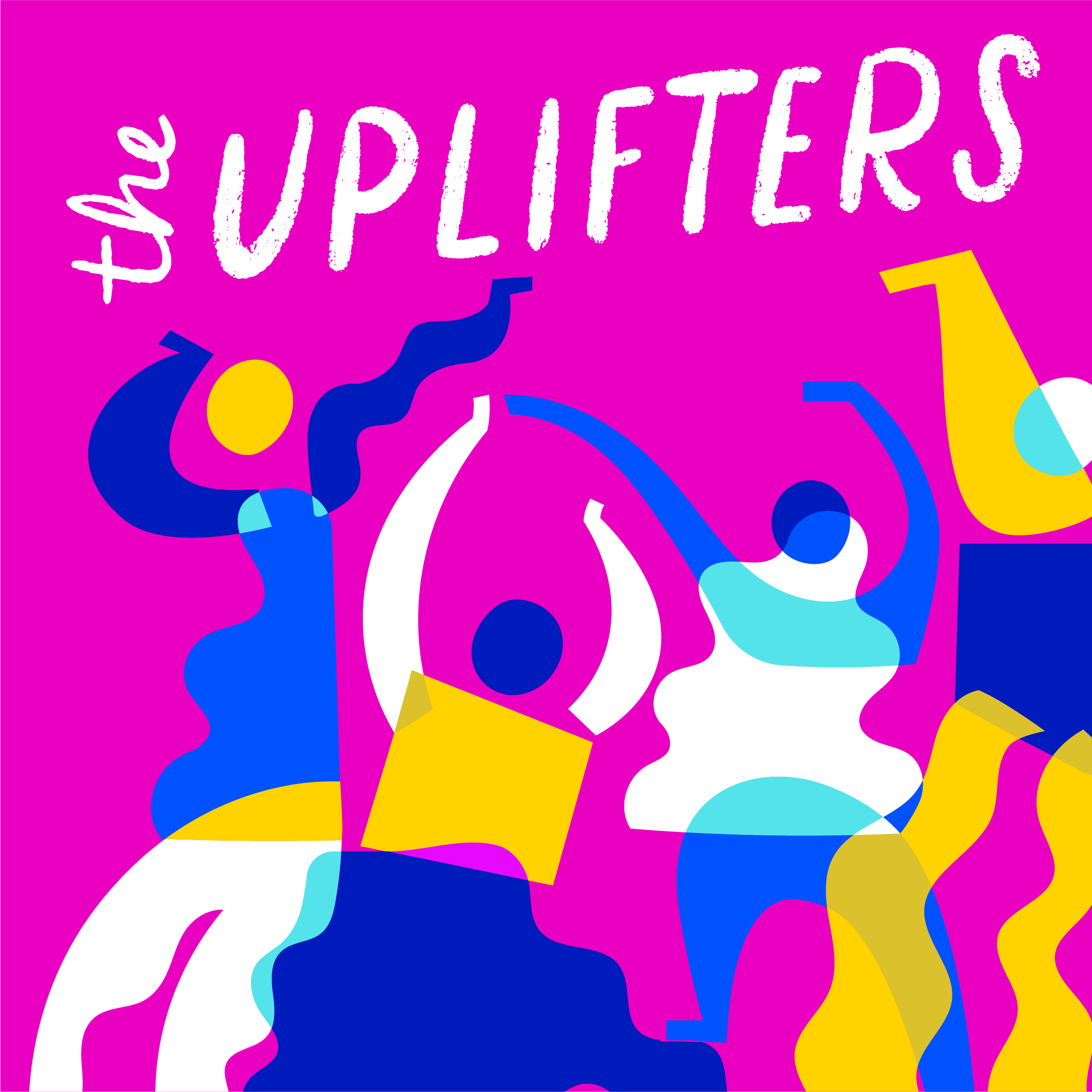The Love Your Life Podcast: Episode 9: Gratitude
Description
This is Episode 9: Gratitude Today, I want to talk about gratitude as a feeling. Previous episodes have introduced you to the concept that thoughts generate feelings, and then feelings drive actions. Gratitude can also show up in the actions we take. In fact, grateful actions produce amazing results in this world. Let’s not underestimate the power of sincere thank you’s and acts of service that stem from the feeling of gratitude, but for now we are going to dive into the thought play ground of being instead of doing. . When you think about gratitude as a feeling, you will notice that this feeling can be located somewhere in your body. Take a minute and think about how and where you feel gratitude. I notice gratitude in the heart center of my chest. It is warm, and has a bit of weight to it. Sometimes gratitude creeps up from there and feels constricting in my throat as it works itself up to my eyes to leak out in the form of tears. Gratitude is a moving emotion for me. It has the ability to produce actions quickly- like talking to someone nearby or calling or text someone - but I find that I love sitting with the feeling of gratitude on purpose without moving, to savor it more than I used to. After you have taken a minute to notice how you experience the feeling of gratitude in your body, stay curious and start asking yourself what kind of thoughts you think when you feel this feeling. When I feel grateful, I tend to link it with the awareness that I am seen or known by people around me and by God, or that I am lucky to have an item or a person in my life. When I ask myself to think about the things I am grateful for, I often picture them in my mind visually- and feel the glow around each image in my mind before I feel it at my heart center. The thing about Gratitude is that I don’t automatically feel this feeling just by looking at my car - or my child - I have to attach the awareness that I am lucky to have it, or that someone thought of me and provided their words, actions, or items for me to share. Most of the things I am truly and sincerely grateful for are the most common and frequent things and people in my life. I only get the gift of feeling the feeling of gratitude when I remember to think how lucky I am to have them. And what is super cool about experiencing gratitude is that I can call this feeling into my life no matter what the circumstance is or how bad the day, because I control it with my thoughts.IN fact, the harder the day or the experience the more powerful it is to summon the feeling of gratitude to help myself through it. Most people believe that feelings come into their lives based on their circumstances. When we interact with our feelings like this, we are at the mercy of the people and circumstances around us to allow us to feel positive emotions like gratitude. This is a limiting way to live because Life is going to give you just as many circumstances that are negative as there will be positive, so it could feel very yo-yo like to let circumstances be in charge of your feelings of gratitude. It is also more likely that if you are not choosing to invite thoughts of gratitude into your life on purpose, that you will get into the habit of only noticing what isn’t working and never acknowledging and giving thanks for what is. There are multiple reasons why you will want to give this practice of gratitude more attention. Let's take a look at them - First Science. I personally believe that truth is truth no matter what vocabulary words you use to speak it or describe it. Gathering scientific data deepens my understanding of emotional and spiritual practices and illuminates why I might want to continue or start incorporating them into my life. And scientists know a lot about the chemicals that the thoughts, feelings, and actions of gratitude produce in our brain. The list is impressive! When we express or feel gratitude, we activate the brain’s reward system and the neurotransmitter dopamine is released. Dopamine feels good and encourages you to repeat the actions or thoughts that created it in the first place. Gratitude is also linked to higher productions of serotonin, a known mood enhancer and depression reducer. When we express gratitude to others, the brain releases oxytocin, a hormone associated with social bonding and trust. This can strengthen relationships and fosters feelings of connection and empathy. Gratitude also has the ability to trigger the release of endorphins - and we all learned from Legally Blonde, that endorphins make you happy and help keep you from shooting people. So you are going to want to get as many endorphins flowing as you can. And if all of this positivity wasn’t enough, Gratitude has been shown to lower the stress hormone cortisol, which helps reduce anxiety, produces better sleep, and improves physical health. When you start to understand what is going on in your brain when feelings of Gratitude are created, you find a world of motivation. People literally take drugs to experience the chemical benefits that Gratitude produces. The beauty of this is that the side effects expressions of gratitude create in a life are much more connecting and healthy than drugs. Religions and great thinkers throughout time invite us continually to incorporate an attitude of gratitude into our being. Even if they didn’t have the information on brain chemicals back in the day, they had the insight to know that it was an important player in the creation of a happy life. The Bible says in 1 Thessalonians 5:18 , “In everything give thanks: for this is the will of God in Christ” we find directives about Gratitude from every religious perspective, cultures, and times around this world. The Bhagavad Gita Represents Hinduism when it says that “When a person performs their duties with a grateful heart, they achieve the highest purpose of life.” This quote points that it is not the duties that one performs - but the state of the heart as one performs them. And I adore this quote from Buddha : Let us rise up and be thankful, for if we didn’t learn a lot today, at least we learned a little, and if we didn’t learn a little, at least we didn’t get sick, and if we got sick, at least we didn’t die; so, let us all be thankful.” He is truly committed to finding something to be grateful for, and sometimes we have to look harder than others. It reminds me of the way my favorite irish blessing goes - May those that love us, love us; and for those that don't love us, may God turn their hearts; and if he can't turn their hearts, may he turn their ankles, so we may know them by their limping." It is something about the idea - that you might not have it exactly how you want it, but there is still good to be found when you look for it. The Qur’an says that If you are grateful, then God will surely increase you [in favor]. — Qur’an This feeds into the idea of the law of attraction that teaches us that the feeling or practice of Gratitude is the foundation that becomes the magnet for any other good thing we want in our life. If you are a person looking for more of anything in your life, you are going to want to start with doing the work to be grateful for what you already have. Cicero teaches us from ancient Greece that Gratitude is not only the greatest of virtues but the parent of all others.” I love this idea of Gratitude birthing other beneficial feelings and behaviors. And Taoism chimes in from La Tzu in the Tao Te Ching to Be content with what you have; rejoice in the way things are. When you realize there is nothing lacking, the whole world belongs to you.” Just sit for a minute with that one - To give us the directive to be content with what we have leads us to see that nothing is lacking. When nothing is lacking we have everything we need. If gratitude is not the parent of other virtues - it is certainly the birthplace of abundance. Gratitude is truly a universal theme that transcends time, cultures, and religions. You can think of it as a directive, and you can also think about it like I do in my coaching practice as an antidote that can be applied to many negative spaces in life. I have seen Gratitude Heal dissatisfaction, egocentricity, unhappiness, yearning, confusion, unmet desires, relationship disagreements, loneliness, loss, illnesses, and so much more. I believe in its healing powers so much that I have a policy that I teach consistently. It is that it is not wise to change any aspect of your life at all, until you can get grateful for what you already have and learn to truly love what already is. Learning to be grateful and see the good in what is, gives us all the ability to move towards more good, and thus multiply the good in our lives instead of running from one negative space to the next and bringing all of our negative thinking patterns with us. You are never going to be able to create positivity in your next chapters if you can only see negativity in the current chapter. And gratitude is the cure. The best thing you can do today to medicate yourself with Gratitude is to improve your practices and awareness of Gratitude. I recommend that each person starts lists of what they are grateful for. If there is a particularly unhappy or scratchy area or person in your life right now, start looking for what you can be grateful for surrounding it or them. You will find the things you are grateful for when you send your brain to go looking for what you would not have in your life without that person or thing. You might have a mother in law that is hard for you, but you would not have your spouse without them. This is not some trippy mind game, this is the truth. Acknowledge what is at its most basic form and you can find something to be grateful for in almost any person or circumstance, just like Buddha taught. And keep in mind that you are the only person who gets the benefit of thinking thoughts that produce gratitude - no one else feels what you are feeling - you are likewise the only
























